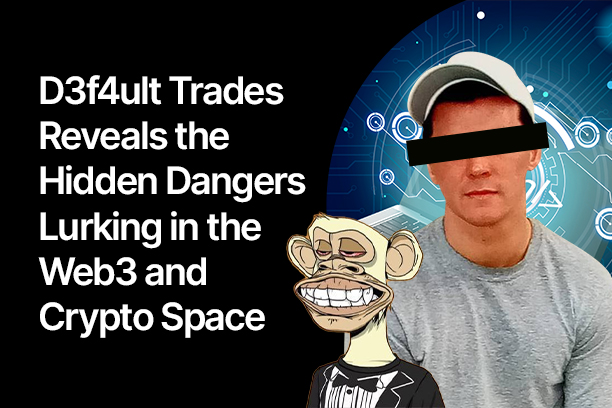In a compelling episode of CoinRock Show, Justin, better known as D3f4ult Trades, pulls back the curtain on the darker side of the crypto world.
As a former hacker turned crypto visionary, Justin provides an unfiltered look at the hidden dangers lurking in the Web3 and crypto space—dangers that many investors and enthusiasts overlook in their pursuit of quick gains.
The Illusion of Decentralization
While Web3 is often celebrated for its promise of decentralization and financial freedom, D3f4ult exposes a harsh truth: true decentralization is rare.
“Decentralization is the buzzword everyone loves to throw around, but in reality, most projects are controlled by a small group of insiders,” he revealed.
Despite the veneer of community-driven ecosystems, the power often lies in the hands of a few, leading to manipulation, biased governance, and centralized decision-making disguised as democratic processes.
The Rise of Scams and Rug Pulls
One of the most alarming issues Justin highlights is the rampant growth of scams in the crypto space. From rug pulls to pump-and-dump schemes, the landscape is littered with projects designed to exploit naive investors.
- Fake Projects: “Some of the biggest scams are hiding in plain sight, with flashy websites and influencer endorsements,” Justin warned.
- Ponzi-Like Tokenomics: Many projects rely on unsustainable models, where profits for early investors come directly from the losses of new entrants.
- Exploiting FOMO: Scammers prey on the fear of missing out (FOMO), luring people into risky investments without proper due diligence.

Security Vulnerabilities: A Hacker’s Perspective
Drawing from his background as a former hacker, Justin provides rare insights into the security flaws that plague both centralized and decentralized platforms:
- Smart Contract Exploits: “Many DeFi platforms don’t audit their code properly. One vulnerability can drain millions overnight,” he explained.
- Poor Key Management: Weak security practices among crypto holders make them easy targets for hackers.
- Centralized Exchange Risks: Even major exchanges aren’t immune to breaches, as history has shown with high-profile hacks like Mt. Gox.
The Case for Regulation
Surprisingly, Justin isn’t anti-regulation. In fact, he sees smart, balanced regulation as a potential safeguard against the chaos:
“Regulation doesn’t have to kill crypto. Done right, it can protect investors and force projects to be transparent,” he argued.
He believes that clear guidelines can help weed out fraudulent actors while allowing legitimate projects to thrive, ultimately creating a healthier ecosystem.

Survival Tips: How to Navigate the Dangers
Justin didn’t just highlight the problems—he offered actionable advice for those looking to protect themselves in the crypto space:
- Do Your Own Research (DYOR): “If you don’t understand it, don’t invest in it,” he stressed.
- Beware of Red Flags: Projects with anonymous teams, unrealistic promises, or aggressive marketing tactics should be approached with caution.
- Prioritize Security: Use hardware wallets, enable two-factor authentication, and never share private keys.
- Question the Narrative: Don’t blindly trust influencers or hype cycles. Always ask, “Who gets benefit from this?”
Final Thoughts: Facing the Harsh Reality
Justin candid revelations are a wake-up call for anyone involved in crypto. While the industry offers unparalleled opportunities, it also comes with real, often hidden risks.
His story is a reminder that success in Web3 isn’t just about chasing profits—it’s about staying informed, questioning everything, and protecting yourself in an unforgiving digital frontier.
“Crypto isn’t just about getting rich quick. It’s about understanding the game so you don’t get played,” Justin concluded, leaving listeners with the ultimate lesson: Knowledge is the most valuable currency in the crypto world.





